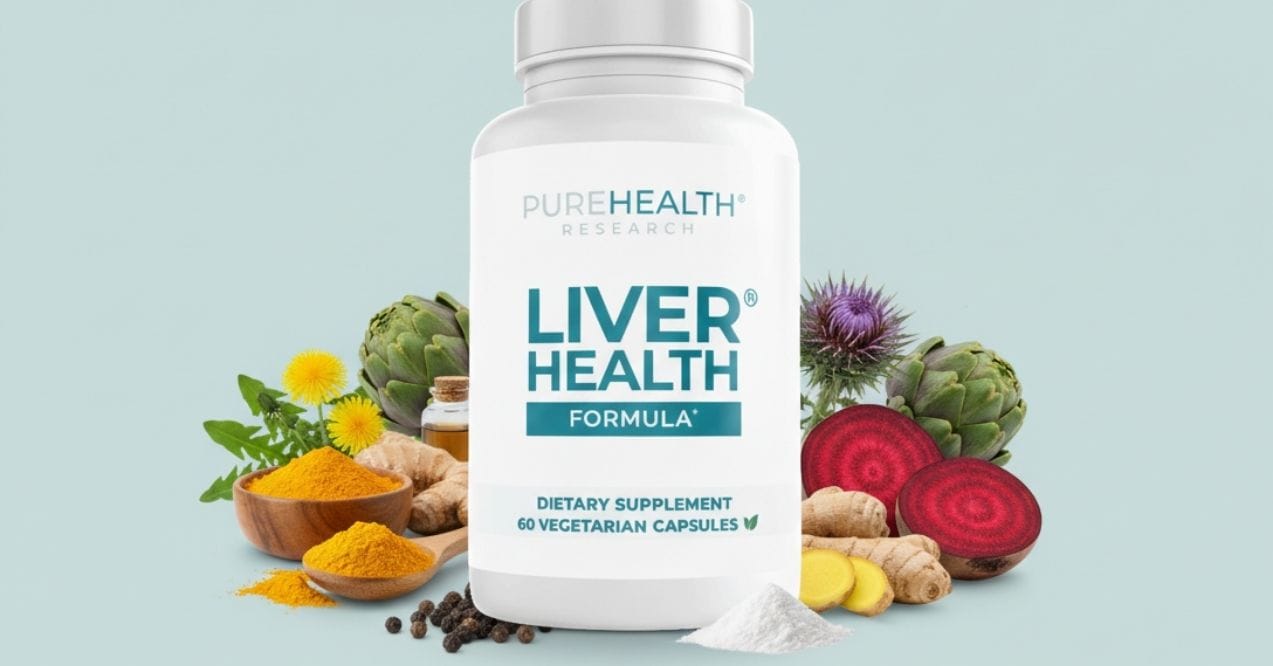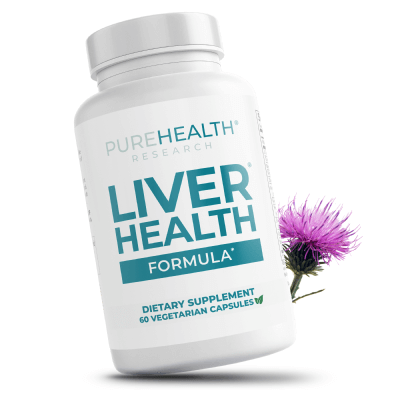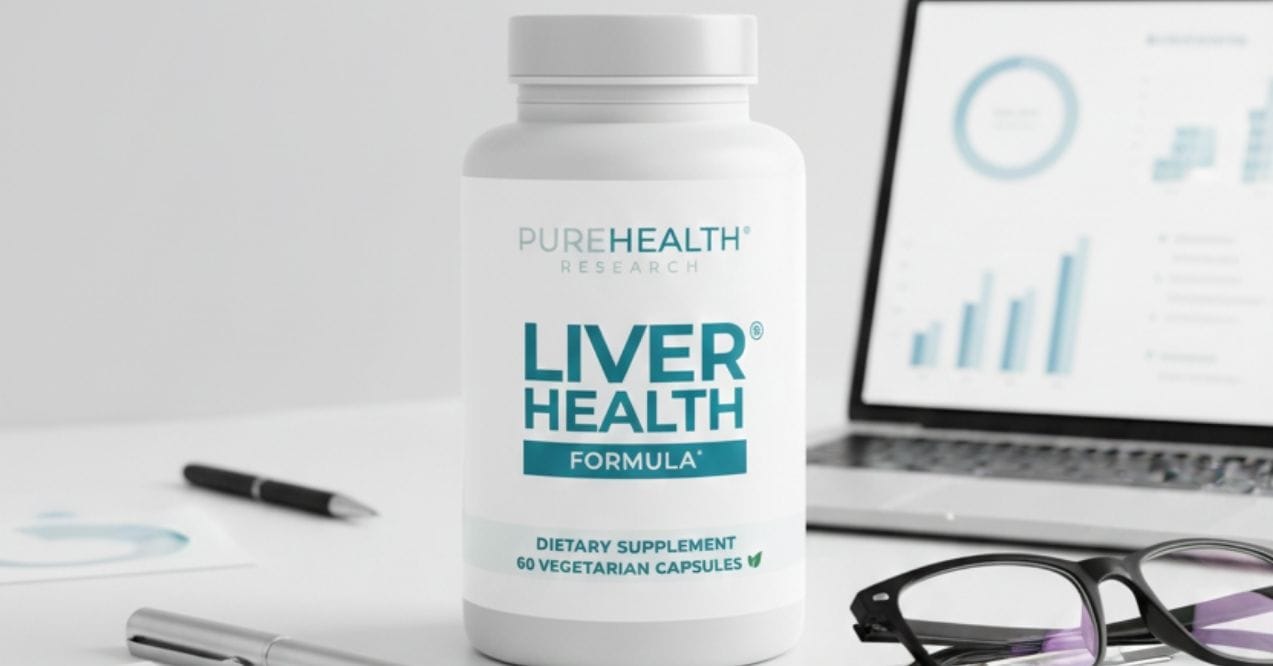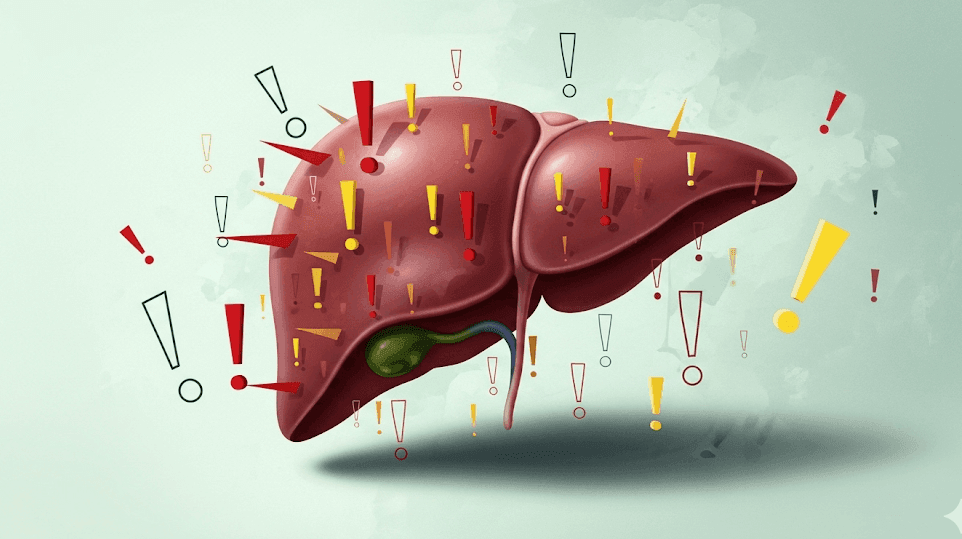Liver Health Formula Ingredients: How They Promote Liver Wellness
Key liver health formula ingredients explained: milk thistle, turmeric, artichoke, and 9 more nutrients that promote liver wellness.


Your liver performs over 500 vital functions daily. Supporting this organ with targeted nutrition can help maintain its natural processes. This article explores Liver Health Formula ingredients and how each component may contribute to balanced metabolic function and internal cleansing systems.
What Is a Liver Health Formula—and Why Does It Matter?
The liver acts as your body’s central processing hub. Every minute, it filters approximately 1.4 liters of blood while converting nutrients into usable forms. This organ also manages the breakdown of compounds your body no longer needs.
The liver’s essential roles in everyday wellness
Your liver maintains balance through several interconnected processes. Each function supports the others to keep your system running smoothly.
The organ works continuously to manage three primary areas:
- Nutrient processing – Converts food into energy and stores vitamins and minerals
- Toxin filtration – Removes metabolic waste and environmental compounds from circulation
- Antioxidant regulation – Manages oxidative stress through glutathione and enzyme systems
These processes happen simultaneously without conscious effort. The liver influences digestion, energy levels, and cellular health throughout your entire body.
How Liver Health Formula aim to support liver performance
A Liver Health Formula combines botanical extracts and minerals designed to support natural liver processes. These formulas don’t replace liver function or treat conditions. Instead, they may provide nutritional support for existing systems.
Most comprehensive formulas target specific areas. Certain ingredients promote enzyme activity that helps process nutrients. Others may strengthen antioxidant capacity to manage oxidative stress. Some botanical compounds stimulate bile production, which aids digestion and waste removal.
Liver Health Formula Ingredients: How Each Promotes Liver Wellness
Each ingredient in a quality liver supplement serves a specific purpose. Below is a breakdown of 12 core components and their potential benefits.

1. Milk Thistle
Milk thistle contains silymarin, a compound that may support liver cell structure. Research suggests silymarin helps maintain the integrity of hepatocyte membranes. This botanical has been used for centuries in traditional wellness practices.
The active compounds in milk thistle may also promote antioxidant activity. Studies indicate it supports the liver’s natural defense against oxidative stress. Most formulas include standardized extracts containing 70-80% silymarin.
2. Turmeric Root
Turmeric provides curcuminoids that may support balanced liver responses. These compounds potentially influence enzyme pathways involved in processing nutrients. The root has been studied for its role in maintaining cellular health.
Curcuminoids may also help manage oxidative stress within liver tissues. Research suggests they support antioxidant enzyme systems. Enhanced absorption formulas often include black pepper extract to improve bioavailability.
3. Dandelion Root
Traditional herbalists have long used dandelion root to promote bile flow. Bile helps break down fats and carries waste products out of the liver. This root may support healthy fluid movement through liver tissues.
Dandelion also contains compounds that potentially support kidney function. Some people find it helpful for maintaining healthy digestion. The root provides minerals like potassium and calcium.
4. Artichoke Leaf Extract
Artichoke leaf promotes digestive wellness through its effects on bile production. Increased bile flow may improve fat digestion and nutrient absorption. This extract has been studied for its role in supporting liver enzyme function.
The leaf contains cynarin, a compound that potentially influences bile secretion. Research indicates it may help maintain healthy cholesterol metabolism. Many formulas use standardized extracts for consistency.
5. Beet Root
Beet root provides betalains, pigments that offer antioxidant activity. These compounds may support liver phase II detoxification pathways. The root also contains betaine, which helps process fats.
Studies suggest beet root supports healthy circulation to liver tissues. It provides nutrients that potentially influence cellular energy production. The root is rich in folate and manganese.
6. L-Cysteine
L-cysteine serves as a building block for glutathione production. Glutathione represents one of the liver’s most important antioxidant compounds. This amino acid may help maintain cellular defenses against oxidative stress.
The liver uses L-cysteine to support detoxification enzyme systems. Research indicates adequate cysteine levels promote healthy liver function. This ingredient works synergistically with selenium and zinc.
7. Ginger Root
Ginger root may support healthy circulation throughout the body. Better blood flow potentially helps deliver nutrients to liver tissues. This root has been studied for its antioxidant properties.
Traditional practices have used ginger to support digestive comfort. Some research suggests it may help maintain healthy inflammatory responses. The root contains compounds called gingerols that provide its characteristic properties.
8. Alfalfa
Alfalfa provides a range of vitamins and minerals that support enzymatic function. This plant contains chlorophyll and phytonutrients that may contribute to liver health. It has been used traditionally to support overall wellness.
The herb offers vitamin K, vitamin C, and several B vitamins. These nutrients potentially support various metabolic processes. Those interested in comprehensive organ support might also explore best supplements for kidney health to complement their wellness routine.
9. Chanca Piedra
Chanca piedra, meaning “stone breaker” in Spanish, has traditional uses in supporting liver function. The herb may promote healthy bile flow and fluid dynamics. Some research suggests it influences liver enzyme activity.
This botanical has been studied for its potential protective properties. It contains compounds that may support cellular health within liver tissues. Traditional practitioners have used it for generations.
10. Yarrow
Yarrow offers polyphenols that may help maintain liver cellular integrity. These compounds potentially support tissues during periods of stress. The herb has been used traditionally for various wellness purposes.
Research suggests yarrow may influence healthy inflammatory responses. It contains flavonoids and other plant compounds that offer antioxidant activity. Some formulas include it for its comprehensive benefits.
11. Zinc
Zinc plays a direct role in over 300 enzyme reactions throughout the body. The liver requires adequate zinc for protein synthesis and cellular repair. This mineral supports immune function and antioxidant defenses.
Studies indicate zinc deficiency may impair liver function. Supplementation potentially helps maintain healthy enzyme activity. The mineral works closely with copper and selenium.
12. Selenium
Selenium assists in antioxidant processes that regulate oxidative balance. This mineral serves as a cofactor for glutathione peroxidase enzymes. These enzymes help protect cells from oxidative damage.
Research shows selenium supports immune function and thyroid health. The liver uses selenium-dependent enzymes for various metabolic processes. Adequate intake may help maintain liver wellness over time.
Integrating Supplements with Lifestyle Support
Nutritional supplements offer valuable support for liver function. However, they work best when combined with healthy daily habits. Your lifestyle choices directly influence how well your liver performs its many tasks. Learning how to make your liver healthy again requires a comprehensive approach that goes beyond supplementation alone.
- A whole-food diet supplies vitamins, minerals, and plant compounds that support enzyme activity. Focus on vegetables, fruits, whole grains, and lean proteins. Limit processed foods and excessive sugar intake.
- Adequate hydration helps maintain fluid balance throughout your body. Water supports the liver’s filtration of metabolic waste products. Aim for consistent water intake throughout the day.
- Routine physical movement encourages healthy circulation. Exercise helps deliver nutrients to liver tissues while supporting overall metabolic health. Even moderate activity provides benefits.
- Consistent sleep allows for cellular repair and regeneration. Your liver performs many maintenance functions during rest periods. Quality sleep supports overall wellness and liver function. Learning about what is the function of the liver helps you appreciate why these lifestyle factors matter so much.
What to Look for in a Quality Liver Supplement
Choosing an effective liver supplement requires careful evaluation. Look for products that use standardized extracts with consistent active compound levels. This ensures you receive reliable amounts of beneficial ingredients.
Transparency in labeling matters significantly. Quality manufacturers list all ingredients clearly with dosage amounts. They provide information about sourcing and manufacturing practices.
Trusted manufacturing practices include third-party testing and quality certifications. Look for products made in facilities that follow good manufacturing practices. These standards help ensure purity and potency. Some ingredients like camu camu fruit helps liver function through its high vitamin C content, though it’s not commonly found in all formulas.
Conclusion
Your liver performs hundreds of vital functions daily. Supporting these natural processes through targeted nutrition may help maintain long-term wellness. Consider both the individual ingredients and how they work together synergistically. These facts about the liver underscore why comprehensive support matters.
Yes, most Liver Health Formula ingredients work synergistically without adverse interactions. Quality formulas balance dosages to avoid excessive intake of any single component. Consult a healthcare provider if taking medications.
There’s no perfect number, but 8-12 complementary ingredients allow comprehensive support. Too few may miss important pathways. Too many may dilute effectiveness or cause digestive discomfort in sensitive individuals.
Milk thistle is most extensively studied for liver support, particularly its silymarin content. However, different ingredients target various pathways. A combination approach typically offers more comprehensive benefits than any single component.
Sign up for our Healthy Living newsletter!
Advertisement. This site offers health, wellness, fitness and nutritional information and is designed for educational purposes only. You should not rely on this information as a substitute for, nor does it replace, professional medical advice, diagnosis, or treatment. If you have any concerns or questions about your health, you should always consult with a physician or other health-care professional. Do not disregard, avoid or delay obtaining medical or health related advice from your health-care professional because of something you may have read on this site. The use of any information provided on this site is solely at your own risk.











